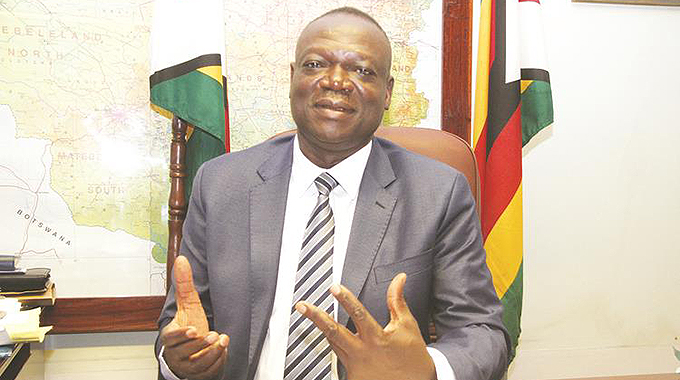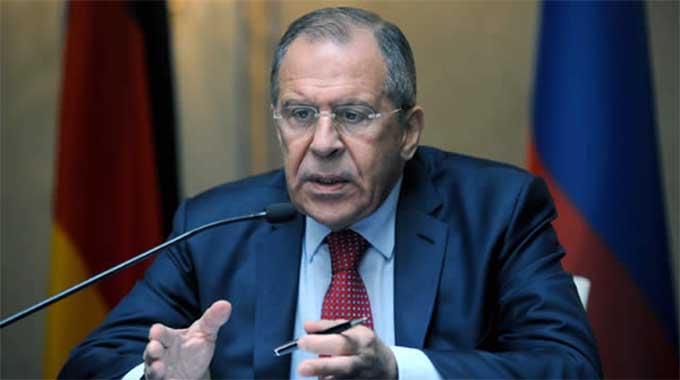IFAD to help uplift rural areas

Elita Chikwati Senior Agriculture Reporter
The International Fund for Agricultural Development has pledged to assist in transforming the country’s rural areas to improve people’s livelihoods and reduce rural to urban migration. This emerged during a meeting between visiting IFA president Mr Gilbert Houngbo and senior Government officials yesterday.
The officials included Minister of Lands, Agriculture, Water, Climate and Rural Resettlement Perrance Shiri and his deputy, Peter Haritatos; Acting Minister of Finance and Economic Development, who is also Minister of Women Affairs, Community, Small and Medium Enterprise Development Sithembiso Nyoni; Secretary for Finance and Economic Development Mr George Guvamatanga, United Nations resident coordinator and UNDP resident representative in Zimbabwe Mr Bishow Parajuli, IFAD officials and senior officials from the Ministry of Lands, among others.
Mr Houngbo said IFAD was targeting interventions in communities deemed to be the poorest in the countries they serve. He said they are focusing on women and the impact of climate change on agriculture.
“The youth is the fourth pillar in addition to gender, climate change and resilience that IFAD stands for. As IFAD, we want to invest in the rural transformation in farm and non-farm activities and contribute to rural transformation. This investment in the rural community is so vital. In doing so we need to look at ways of improving productivity through the human capital or through the best use of inputs and other means, particularly affordable technology that can help us address the productivity issue,” he said.
He said it was important that youths be empowered through agriculture so that the sector becomes an opportunity for decent income generation.
The agriculture sector had the potential to sustain economic growth and ensure the transition from the current status to a higher level, he added.
“IFAD is ready to contribute as small as it is and our contribution to this challenge will be there. Our key objective is the time where Government is in transition. We want engage with you, the authorities at the time where we are starting our new programming cycle,” he said.
Minister Shiri expressed gratitude to IFAD for the support which he said would go a long way in uplifting the livelihoods of people especially in marginal areas.
“We have people such as women, youths benefiting from these programmes hence enabling them to actively participate in the development of the economy. The programme also helps curb rural to urban migration because through its various projects, people will be kept busy and they will find life worthwhile in the communal areas, which is what we want,” he said.
“We don’t have to overcongest urban areas. Going forward we want to focus in a number of areas top among them capacity building of the smallholder farmer in the communal areas and enterprises development in the marginal areas of the country. We also want to focus on smallholder irrigation programmes in the marginal areas of the country especially given the menacing phenomenon of climate change which is quite evident in this part of the world.”
Minister Nyoni said the programme of irrigation rehabilitation was well-timed as Zimbabwe had a lot of large water bodies.
“We have over 10 000 water bodies comprising major and small dams and Zimbabweans are hardworking. They need to be propelled to produce. What is important is rural enterprise; that is where most economic activities take place. The bulk of the food we consume is grown by smallholder farmers, mostly women.
“We would like to see small enterprises in rural areas to add value and process their produce and this will propel and end poverty and also end rural to urban migration,” she said.
Mr Guvamatanga said Zimbabwe had a long history of co-operation with IFAD and over time the country has received support from IFAD for the agricultural sector.
“Since 1980, IFAD has advanced loans to Zimbabwe amounting to approximately US$64,6 million which have targeted five main projects; the smallholder irrigation support programme which was supported to the tune of $12,1 million, the South Eastern Dry Areas Project ($11,2 million), the Smallholder Dry Resources Management Project ($13,9 million), the Agricultural Credit and Export Promotion Project ($15 million) and the National Agricultural Extension and Research Project ($12,4 million),” he said.
Since January 2017, Government has been implementing the smallholder irrigation revitalisation programme with support from IFAD.
“The programme is meant to sustainably increase diversified production, productivity, income and improve resilience of households in targeted schemes in sub-catchments and communal and old resettlement areas in Manicaland, Masvingo, Matabeleland South and Midlands,” he said.
The programme also involves rehabilitation and development of irrigation infrastructure covering 8 000 hectares, agricultural credit, institutional strengthening, market access and agribusiness.










Comments